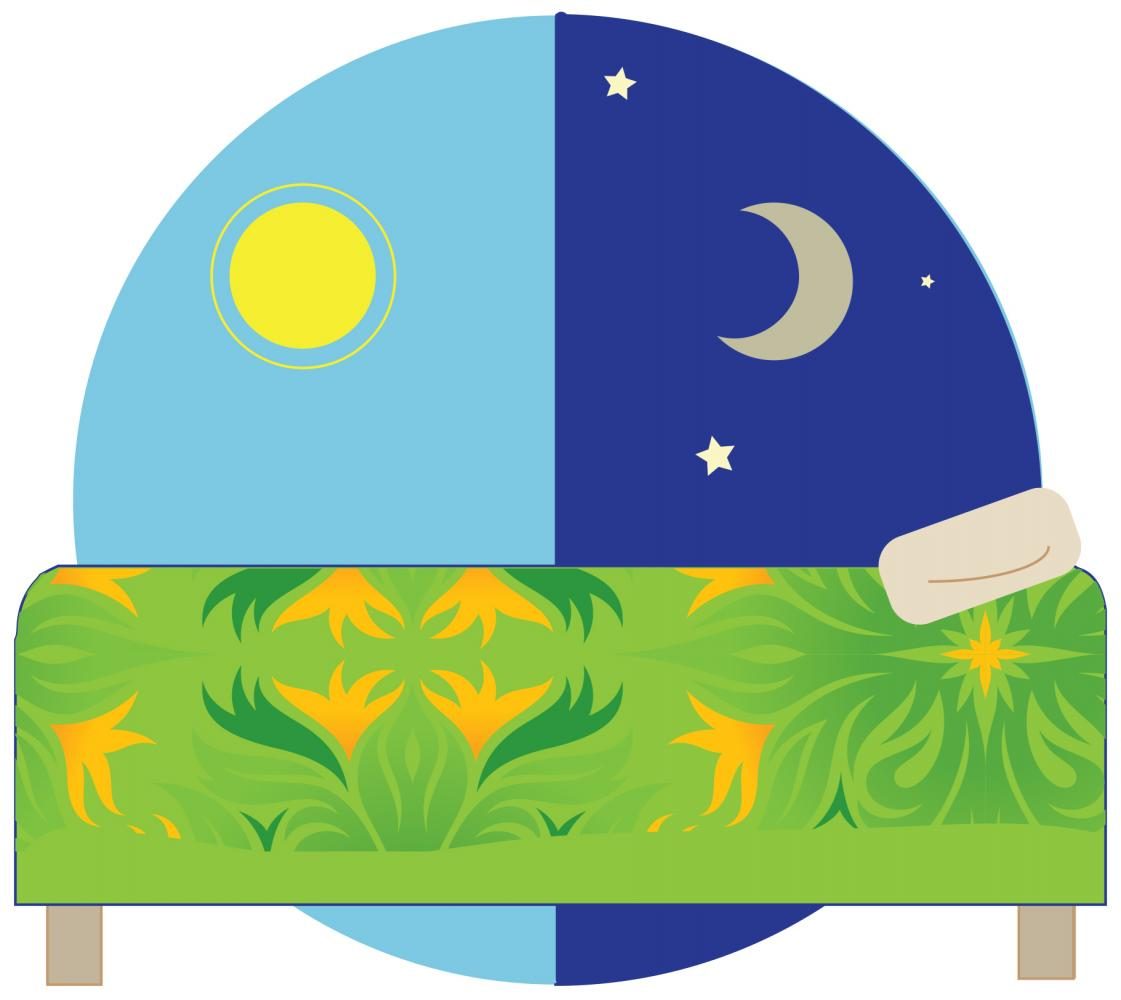Building routines can improve temperament
Getting a deeper sleep can lead to an easier morning
MEGAN ROWE | The Daily Evergreen
Using a smart alarm that slowly gets louder gradually wakes the body.
August 30, 2017
Time management in college, and in life, is crucial. No one wants to be late, tired on the job or just plain old crabby, and it is especially hard to maintain a structured schedule right after summer vacation.
After late nights of partying, hanging out or binge-watching Netflix, mornings can be a challenge, and some nights getting a good rest doesn’t seem feasible.
Waking up is the first thing we experience each day. If you didn’t get the optimal eight hours of sleep the night before, it may be a rough morning, but late nights happen.
Do not hit the snooze button. When you hit this button, and enter the blissful last minute of sleep or say “five more minutes can’t hurt,” your body has a greater chance of falling into the deep sleep that you needed the night before.
Health Education Coordinator Taylor Schwab, who has a master’s degree in public health with a concentration in health behavior analysis, recommended having a smart alarm.
“[Instead of] jolting you awake, [a smart alarm] will gradually wake you up,” Schwab said.
Setting up a time frame to slowly wake the body up will give it time to adjust instead of adapt quickly. The alarm starts with subtle sound and steadily gets louder and by the end, it will wake you, he said.
Apple products have this feature in the clock app already established on the phone. Samsung, Google and Android products need an additional app purchase. Schwab suggested an app called Sleep Cycle.
Next, drink something. After sleeping, the body becomes dehydrated.
“Drinking water will wake up the metabolism and start your day in the right mindset,” Schwab said. If you need something with a little more of a kick, get some caffeine in your system.
Even doing both, first drinking a glass of water and then something with caffeine in it, can work. It is all a personal preference for what works best in your body.
Schwab said that by standing in direct sunlight, you can absorb the Vitamin D and the sensation of light allows the body to wake up in a good environment.
Sleeping is a cozy, wonderful and peaceful state of mind. Our heart rates slow down, our brain takes us to places in our dreams and our muscles can take a breather. One reason waking up can be such a challenge is the fact that your body was at rest.
By increasing your heart rate, you can get blood circulating into your system again. Stretching works great. And if you really want to go above and beyond, do yoga. You can stretch your muscles and your mind while getting your heart rate up.
It’s also important to set a routine. With one in place, the probability that your morning will go smoothly is higher. Always wake up at the same time, so that you don’t trick your body into thinking that it is getting more or less sleep on certain days of the week. Figure out a routine that works best for you.
The routine isn’t just for waking up. Going to bed seems to be hard for some people as well. With homework, activities happening around campus, and your best friend living right next door or even in the same room, it can be hard to turn your brain off and just rest.
A major reason why sleeping can be restless instead of deep is because of the blue light that screens emit. Whether it be from a cell phone, laptop or TV, it wakes up the brain and keeps it in “active” mode, Schwab said.
He also noted that many social media apps, like Facebook, Twitter and Tumblr, are all blue.
The “continuous scrolling” through apps is a result of the blue undertones they emit, which keep users awake for long periods of time, Schwab said.
On Apple products, a night filter can make the phone look like it has a sepia filter. Using this can reduce the screen’s negative effect, he said.
Schwab said many methods are based on personal preference, because not everyone is wired the same way and will not react to the same remedies or processes identically.
Get to know your body. Learn when to stop drinking caffeinated beverages. If you drink coffee around 1 p.m. and find yourself awake until 1 a.m., cut off consumption earlier. Be aware of your senses.
Learn how your body reacts to white noise or quiet, as well as levels of darkness, and whether you can eat right before going to sleep, Schwab said.
He also suggested paying attention to the temperature of the room and how comfortable your mattress and pillow are, and knowing how to adjust if necessary.
Be aware of your allergies and when they affect you, if they do. Keeping your room clean and as dust-free as possible can help with symptoms. Learning and assessing all these factors can benefit your sleep patterns.
By starting and ending your day right, your days can become much more bearable, so try a few of these tips and learn more about your body in the process.




















